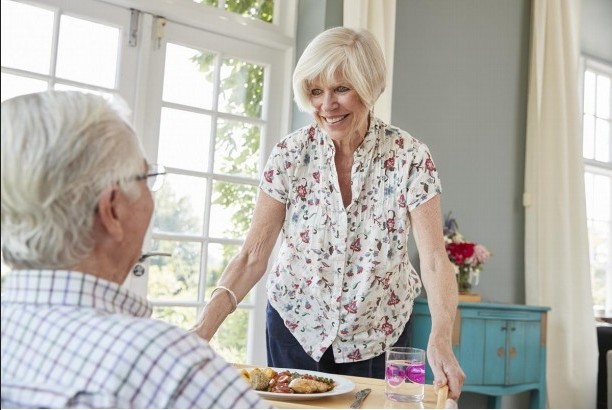Important Step in Senior Safety and Prevention
A very important step in safety and prevention is staying on top of your medical management. Be sure to review any medications you are currently taking, and tell your doctor everything when you take your regular physical checkups and report any symptoms or side-effects you may be feeling.
Don’t put this off! If a medication is making you feel ill, there is likely a suitable replacement available. Avoiding or ignoring anything that is making you uncomfortable is not healthy and could cause complications or permanent damage that could have been avoided in the first place.
It’s important that you visit your doctor regularly and don’t skip appointments. You’ll also want to be regularly screened for changes in your vision. In fact, you should have your prescription checked every year. Ensuring you have corrective lenses, if needed, will help reduce headaches and migraines while reducing your risk of falling.
Healthy Habits
Good health begins with developing healthy habits that will increase longevity and help you feel and look as good as you possibly can.
One thing to keep in mind is your overall weight. Seniors often struggle with being underweight which is typically a result of not eating enough nutrient-dense foods. If this is the case, you’ll want to re-evaluate your diet and create a plan that includes the important nutrients that may be currently missing.
Remember: Always consult your health provider before making any changes to your diet for their advice and approval.
Active Lifestyles
Listen, just because you’re getting older doesn’t mean you should transition into a sedentary lifestyle. It should be the opposite because the key to health and prevention is to become as active as possible!
No matter how old you are, you will benefit from regular exercise. Not only will it help you stay mobile and flexible, but it can help you effectively manage health problems, boost your immune system and vitality, improve your range of motion and help with mental health.
Check with your family doctor prior to starting any exercise program or workout routine.
Make sure that there are no health conditions that may impede your ability to exercise. Discuss options with your doctor including how long or how often you should exercise as well as the different types of exercises that are safe based on your medical history.
Start walking! It’s a great way to stay fit while not requiring any expensive equipment. Enjoy your surroundings and get back with nature if the weather is permitting.
Plus, you can start slow and increase your speed and distance as your body adjusts. And if you’re concerned about being out on your own, check with your local community about senior-walks or meet-ups. Senior Protection can protect you anywhere you go with our new mobile personal safety alert device. Click here for information..
Easy does it: Start off slow, regardless of what exercise you are participating in. Don’t over-exert yourself.
Change Up Your Physical Activity: Improve your endurance, strength, flexibility and balance by varying your exercise. Consider light aerobic activities, gardening, walking, water aerobics or yoga sessions designed for seniors.
Tip: If fear is one of the things holding you back from your independence then you seriously need to contact Senior Protectiontoday. Nobody should live in fear, our personal emergency alert devices are specially made for Canadian seniors and our lifestyles.
Take back your life with control and contact us today.
SENIOR PROTECTION | 1 866 416 0838 | SALES@SENIORPROTECTION.CA
